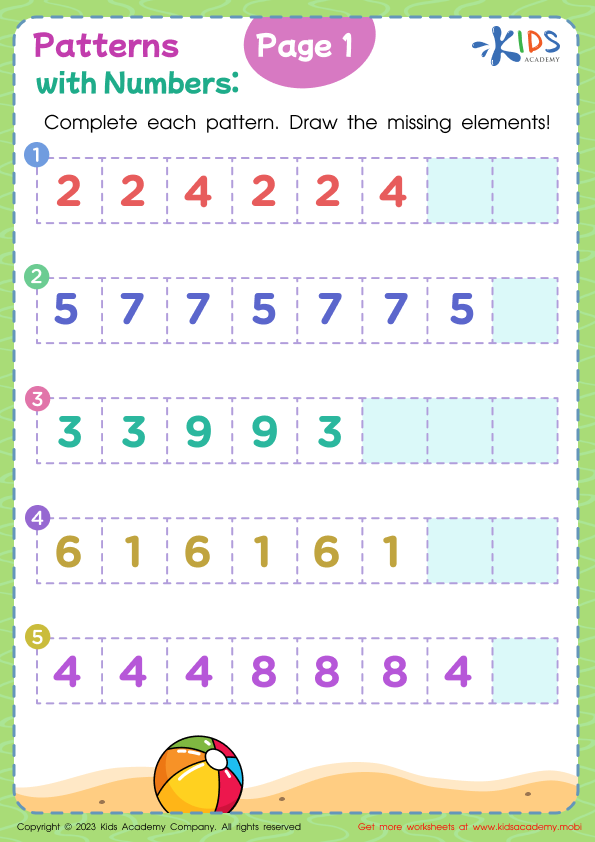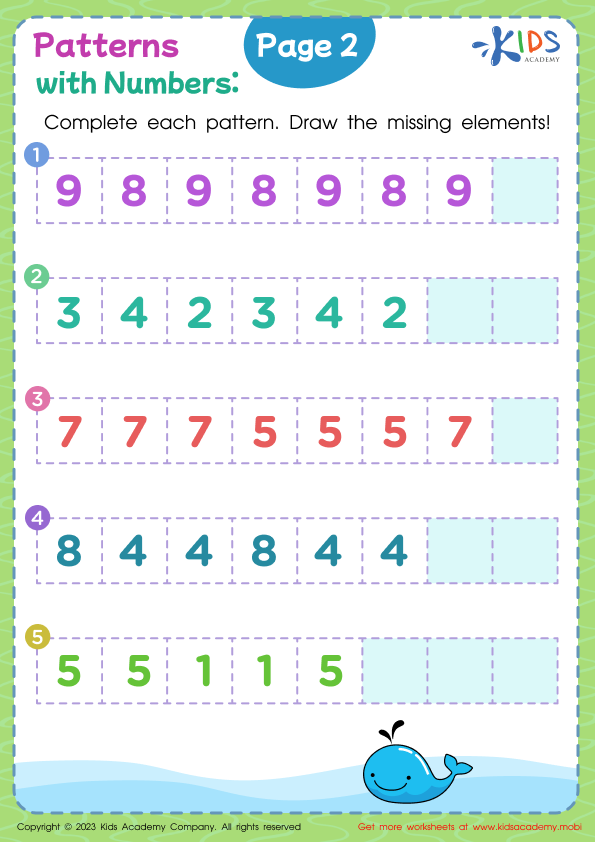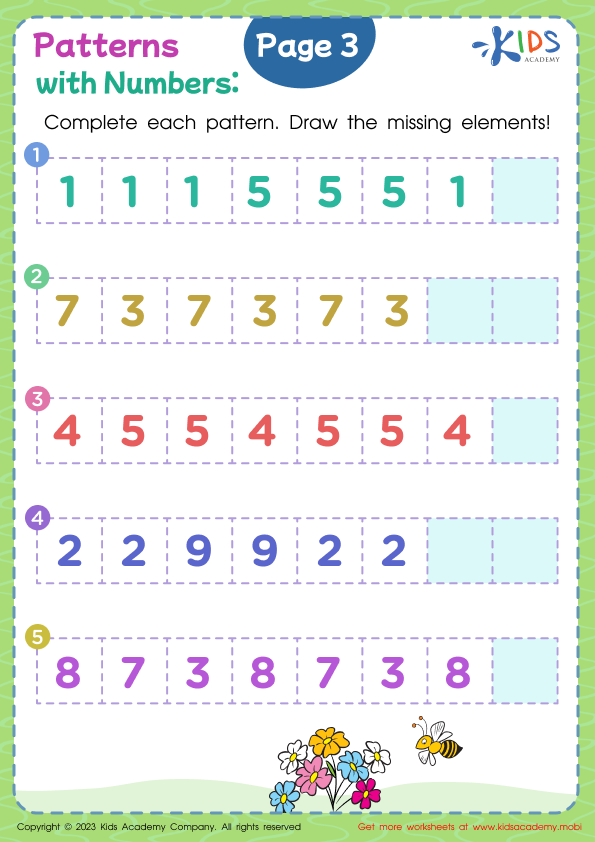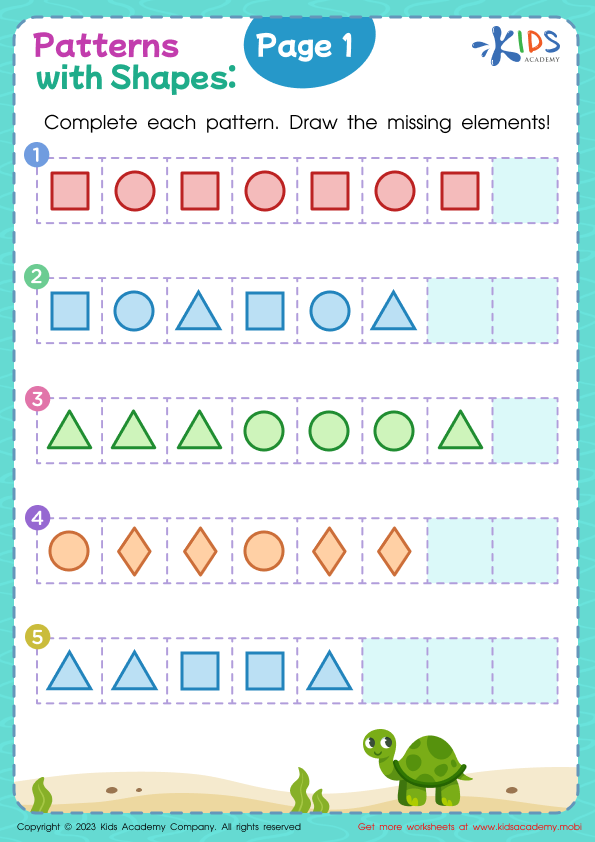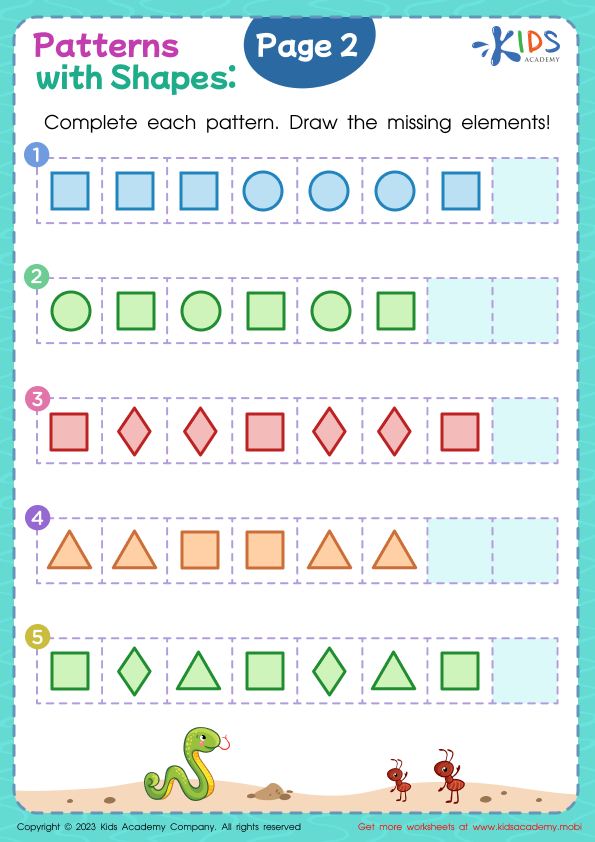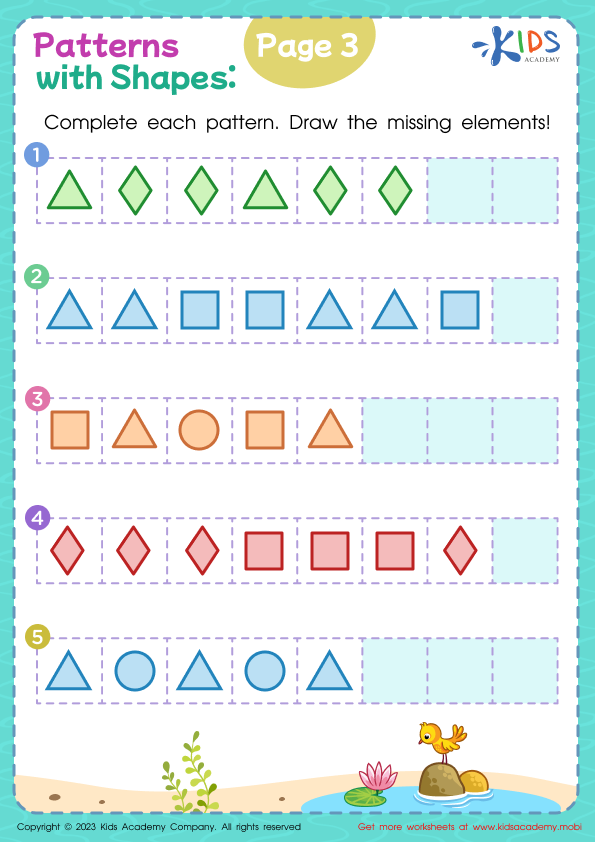Patterns Worksheets for Grade K
7 filtered results
-
From - To
Discover our dynamic collection of Patterns Worksheets for Grade K at Kids Academy! Designed specifically for kindergarteners, these worksheets enhance critical thinking and problem-solving skills. Children will enjoy engaging activities that include identifying, extending, and creating patterns using various shapes, colors, and objects. Our expertly crafted resources offer a fun and interactive way to build foundational math skills, fostering a love for learning early on. From simple AB patterns to more complex sequences, our worksheets cater to all skill levels. Ideal for both classroom and homeschool settings, help your child become a pattern master today!
Patterns are a fundamental aspect of early childhood education that hold great significance for both parents and teachers of kindergarteners. Recognizing and understanding patterns lays the groundwork for critical thinking and problem-solving skills. Patterns can be found everywhere—in nature, in daily routines, and in language—so teaching kids to identify and create patterns helps them make sense of the world around them.
Firstly, patterns help children develop cognitive skills like reasoning and logic. By discerning sequences and regularities, they can predict what comes next, which is a basic form of forecasting and planning.
Secondly, working with patterns sharpens mathematical skills. Kindergarten math includes recognizing shapes, colors, and numbers, all of which can be organized into patterns. This early exposure aids in understanding more complex math concepts in the future.
Additionally, patterns also enhance reading and language development. Understanding patterns in sound, word formation, and sentences can facilitate learning to read by recognizing predictable letter combinations and grammar structures.
On a social level, mastering patterns boosts a child’s confidence and enthusiasm for learning. When children successfully identify or create a pattern, it provides a sense of achievement, promoting a positive attitude towards school.
In essence, both parents and teachers should make patterns a key focus because they cultivate essential skills that form the basis for successful lifelong learning.

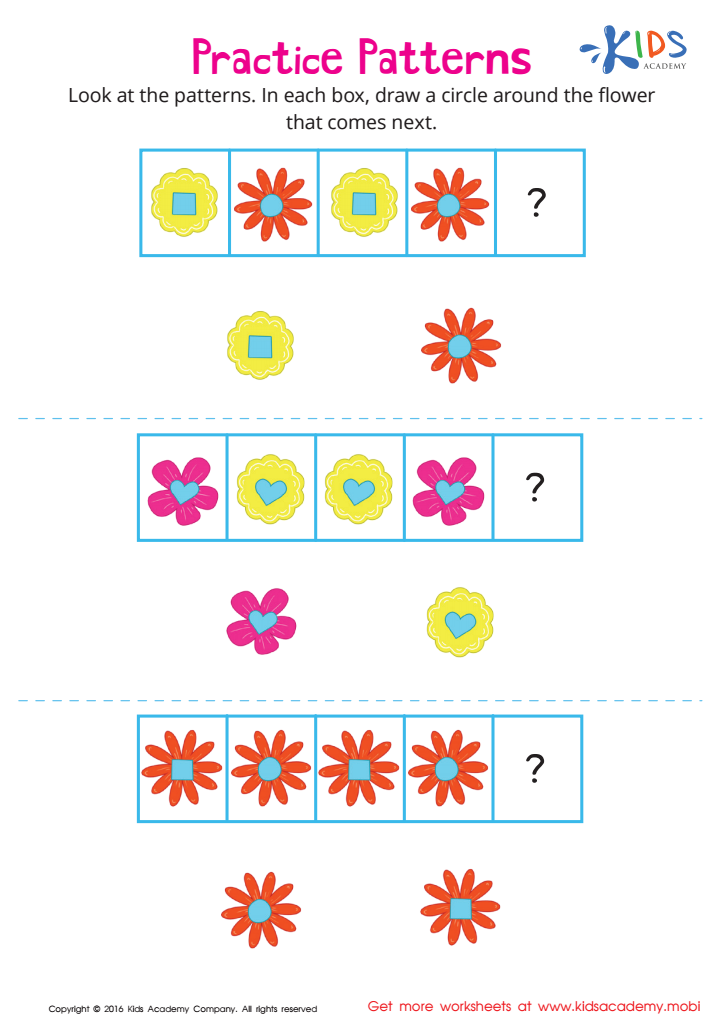
 Assign to the classroom
Assign to the classroom
